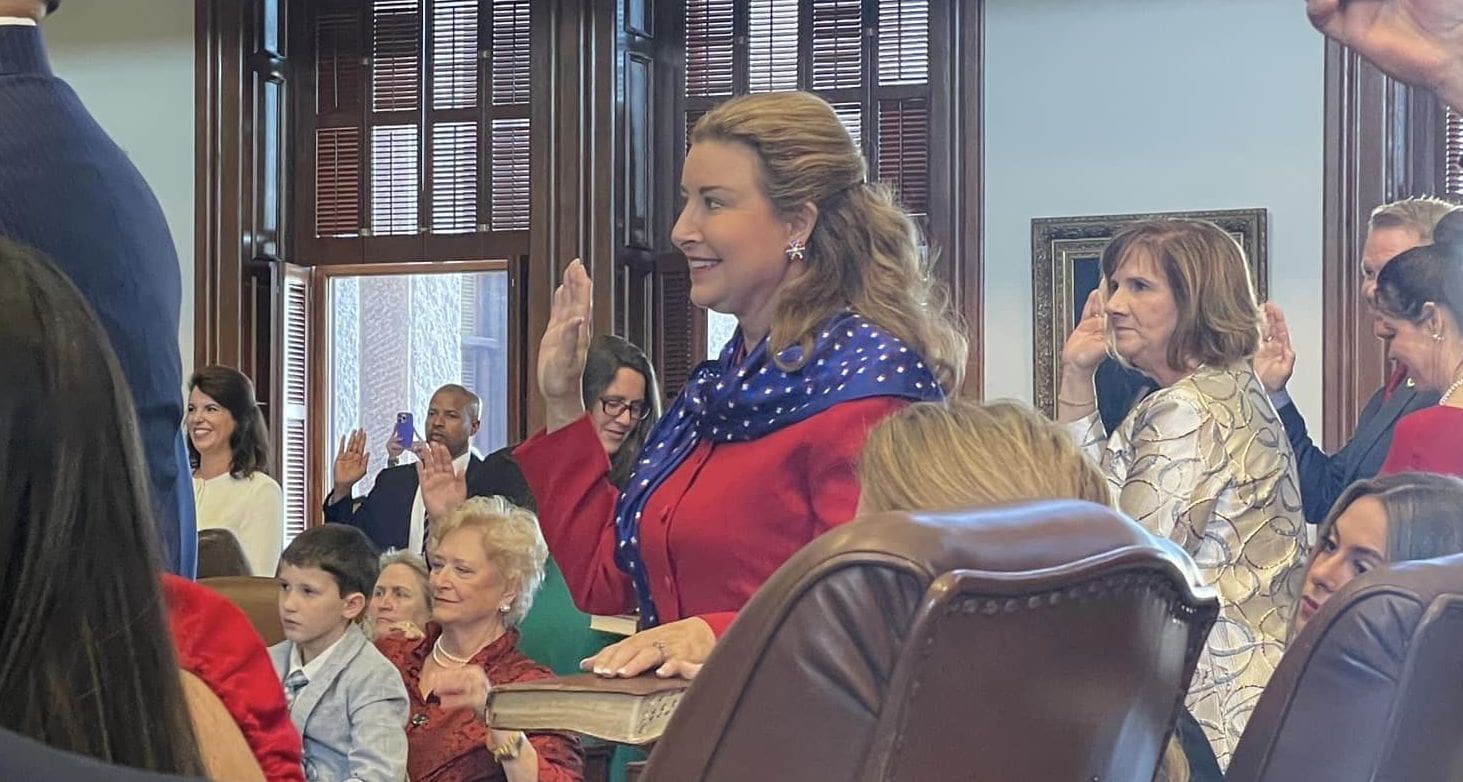A freshman Texas lawmaker who is also a former teacher and state education official has filed legislation to restore public accountability for what is taught in public schools.
“The State Board of Education has authority over curriculum, but they don’t any longer have authority over the content in instructional materials,” State Rep. Terri Leo-Wilson (R–Galveston) told Texas Scorecard in an interview this month.
Leo-Wilson is a retired Texas public school teacher. She’s also a past member of Texas’ State Board of Education—the elected body tasked with setting curriculum standards and adopting instructional materials for K-12 schools—where she was considered a stalwart conservative voice during her three terms.
Since then, responsibility that once belonged to elected SBOE officials has been taken over by publishers and unelected bureaucrats at the Texas Education Agency.
“The curriculum is what every student must know at the end of each grade level. The board still writes those, and we have fairly good, sound standards,” said Leo-Wilson. “But the piece that was lost under Senate Bill 6, which took full effect in 2011… is the piece that governed over instructional materials.”
One of her priorities as a new member of the Texas Legislature is to return control over those materials to citizens via their elected state education board officials.
“Elected board members are beholden to the voters, unlike bureaucratic state agency employees,” she said in a recent newsletter to constituents. “Parents know what’s best for their children’s educational needs, and it’s important that we empower their elected SBOE representatives, not textbook publishers who are beholden to other interests.”
Leo-Wilson told Texas Scorecard that things have changed since she served on the SBOE from 2003 to 2013.
“When I was on the board, The Wall Street Journal actually ran an article that said the ‘little-known’ State Board of Education in Texas was the most influential board in the United States,” she said.
Texas was the second-largest purchaser of instructional materials, so textbooks accepted or rejected by the SBOE impacted what went into every classroom across the nation.
“So, they were motivated in the end by money,” she said. “But they worked with the majority of the board when things were wrong in their textbooks.”
She said publishers now “self-certify” whether or not their textbooks contain all of the Texas Essential Knowledge and Skills (TEKS), and even if publishers submit materials for the review, the board has no legal mechanism to make them comply with standards.
“Therein lies the problem,” she said.
Leo-Wilson has filed three public education reform bills to increase the SBOE’s oversight of what is taught in Texas’ K-12 schools:
House Bill 1804 creates several new criteria for instructional materials and gives the SBOE final approval over which materials are adopted.
House Bill 1822 authorizes the SBOE to review advanced placement courses to ensure they comply with the TEKS and other state laws before schools can offer the courses as part of their curriculum.
House Bill 1837 allows SBOE members to appoint people to TEKS review committees established by the TEA.
“I’ve written this legislation before,” she said. “But I’ve tried to get it passed as a citizen, and now I’m trying to get it passed as a legislator.”
She said it’s important to distinguish between curriculum and instructional materials.
“When they write bills over here in the House that affect curriculum, but they don’t affect instructional materials, you’ve got a problem,” she said. “And that’s where we’re at.”
You can remove critical race theory [from the curriculum]—and actually, it was attempted this fall—but the Texas TEKS have never had critical race theory in them.
The problem is, it’s in teacher training programs. But more importantly, it is in all of the instructional materials that are hitting your kids’ desks, along with a pile of other objectionable material, biased material.
“The whole point is when you have an elected body in charge and making these decisions, you can get rid of them if they make the wrong decisions,” she said.
Parents, teachers, students, and taxpayers have no recourse when you leave that authority in the hands of a publisher, or it’s in the charge of the bureaucracy, the TEA. So, we have a huge problem in that they are bypassing the elected board.
Parents elected those board members to make sure the stuff wasn’t in their materials. You can’t get a publisher to change those things. Only an elected body can do that. And so, that is the crux of my bills.
For the past 12 years since SB 6 took effect, the board has had very little authority over classroom materials, Leo-Wilson explained. The result: “We have a generation of kids who have been taught that socialism is okay.”
She said COVID policies that closed schools had one benefit: they “woke parents up” to what schools were teaching their children.
“Parents started looking over the shoulder of what their kids were being taught and going, ‘Oh my goodness.’ They never thought it was going to happen in their school,” she said.
“We have just lost a generation,” she added. “We will lose on every single issue that we as conservatives care about, because we have books that are ‘the end justifies the means’ … it’s okay to cheat as long as it gets to the desired outcome.”
Leo-Wilson said she came out of retirement to run for the Legislature because she cares about what’s happening to children in Texas schools.
“We have to offer parents a choice when we have a school that is not serving their student, but we also have to pay attention to what is happening in public schools. Whether we homeschool, whether we private school, those are our future lawmakers,” she said.
“Eighty-five percent of our student population are in public schools. We cannot turn a blind eye to what is happening there,” she added. “Those are going to be our next policymakers, and some of them are here already.”
Texans can use Scorecard’s Elected Officials Directory to find their lawmakers’ contact information.
The entire interview with Leo-Wilson can be viewed here.
No ads. No paywalls. No government grants. No corporate masters.
Just real news for real Texans.
Support Texas Scorecard to keep it that way!





